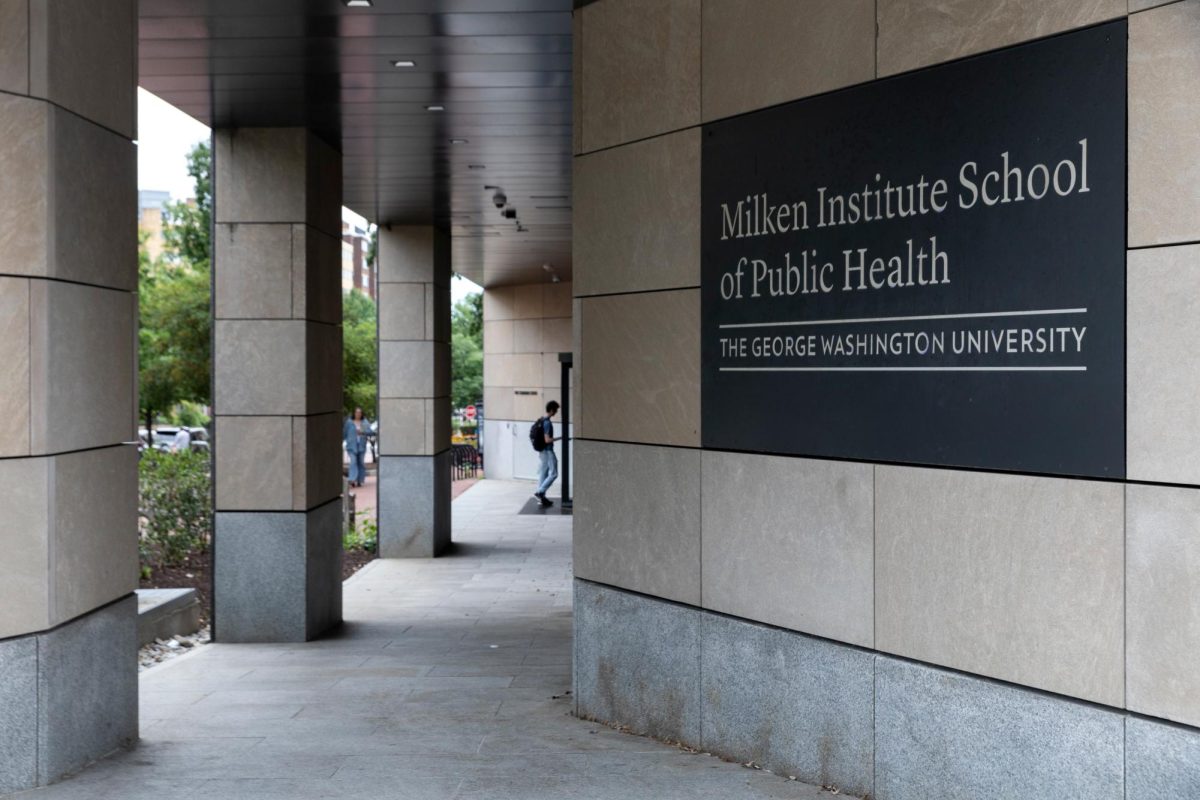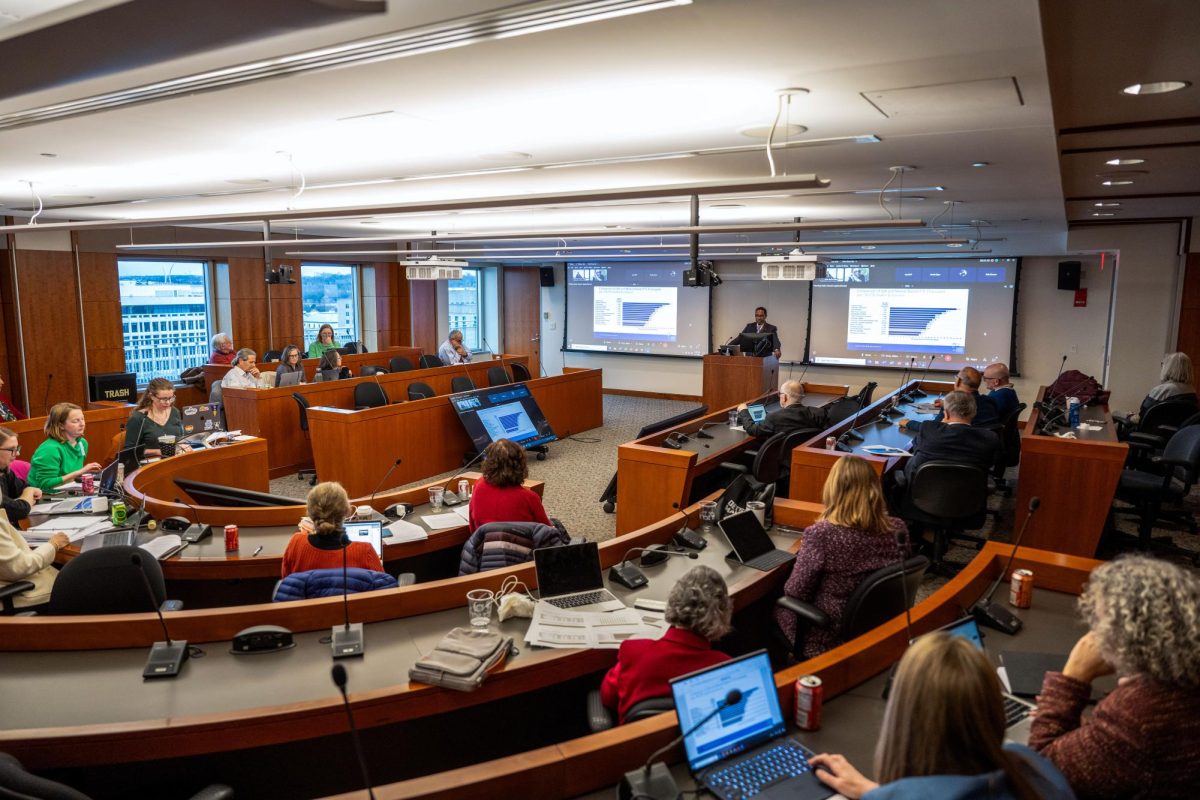About 35 people gathered at the Embassy of Saudi Arabia Wednesday night to commemorate the one-year anniversary of the murder of Jamal Khashoggi, a former columnist at The Washington Post.
Saudi officials under Prince Mohammad bin Salman’s orders murdered Khashoggi last October, and authorities in Istanbul witnessed men strangling Khashoggi as soon as he entered the consulate, the Guardian reported last October. The Committee to Protect Journalists, an organization that advocates for free press worldwide, hosted five free press advocates at the vigil to commemorate Khashoggi’s death and speak out about the Saudi government’s response to Khashoggi’s murder.
“Saudi Arabia is one of the world’s leading perpetrators of capital punishment,” Rep. Jamie Raskin, D-Md., said. “The assassination of Jamal Khashoggi was a political hit by a tyrant, a crown prince who is desperate. According to U.S. intelligence, he is a murderer, who has set himself against the rule of law and against new societies all over the world.”
About 15 participants of the vigil stood with candles and signs that read “Justice for Jamal” on the steps of the embassy and remained silent throughout the 45-minute vigil to honor his death.
Local leaders pushed to ceremonially rename the section of New Hampshire Avenue after Khashoggi in November.
Scott Cooper, the national security outreach director at Human Rights First, said the U.S. government must become more involved in the matter because the Saudi government targeted Khashoggi for his political views. He said Khashoggi’s murder represented a violent threat towards freedom of speech and human rights.
“If there is no accountability when officials of a country, from the government, are involved in the killing of a journalist, then what message does that send to dictators all over the world?” Cooper said. “At Human Rights First, we’ve been fighting for accountability for justice, and right now, we want Congress to take up legislation and pass provisions that will require finding those responsible and accountability for those responsible.”
Courtney Radsch, the advocacy director of the CPJ, said that despite political pressure on the U.S. government, President Donald Trump’s administration refuses to hold the Saudi Arabian government liable for Khashoggi’s murder. Radsch and the CPJ filed a legal brief Thursday requesting that the Central Intelligence Agency release U.S. intelligence and surveillance documents with information about Khashoggi’s death.
“We’ve sent a message, not just to Saudi Arabia, but to governments around the world, that killing journalists is acceptable,” said Radsch. “It is not. We stand outside the Saudi embassy here in Washington, D.C. tonight to recognize the loss of a great journalist and remind the world that we will not rest until there is justice.”
Dokhi Fassihian, the bureau director of Reporters Without Borders, added that bin Salman must release 30 other reporters currently arrested for scrutinizing the Saudi government. Fassihian said she “demands justice” for Khashoggi and other journalists experiencing human rights violations.
“Every since Jamal’s murder, reports have emerged detailing gruesome and horrific crimes that occurred inside the consulate that day,” Fassihian said. “The murder of Jamal Khashoggi is an atrocity and deeply painful loss not only for his family, his colleagues, and his loved ones, but for the larger Arab world who looked to him as a source of hope for dark times.”




